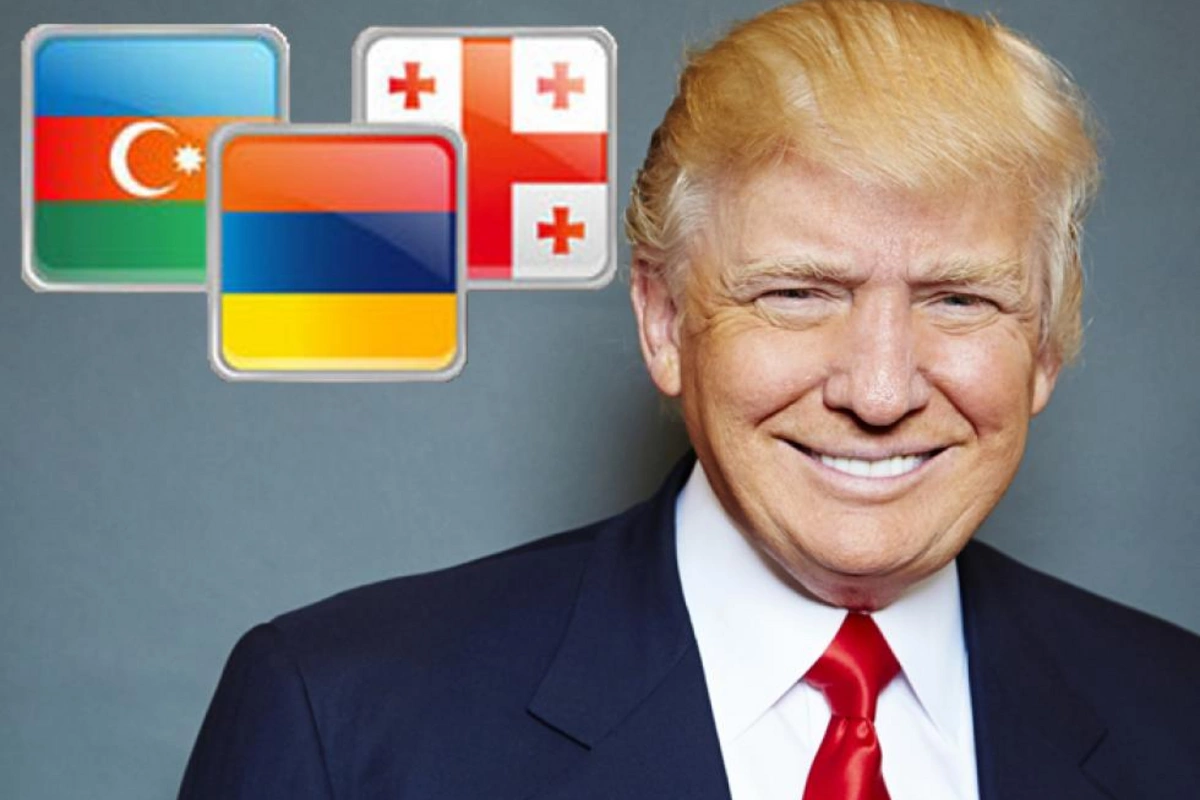
Photo: caucasuswatch.de
As the world speculates about Donald Trump"s return to the White House, significant questions arise about potential changes in U.S. foreign policy, particularly in the South Caucasus. Historically, Republican administrations have approached this region with pragmatism, and Trump"s previous presidency demonstrated his preference for financial benefits over ideological crusades. For Azerbaijan, this pragmatic approach offers opportunities, while for Armenia, the challenge will be maintaining influence without the same level of support from the Armenian diaspora.
Trump"s close ties to the Jewish lobby and his minimal association with the Armenian diaspora could signal a shift in priorities. Unlike the Democrats, who often align with the Armenian-American community, a Trump administration is unlikely to cater to diaspora interests unless they provide substantial financial incentives. This dynamic could ease Azerbaijan"s negotiations with Washington, especially given its consistent focus on mutual benefit. Azerbaijan has historically found it easier to work with Republican administrations, and this trend could continue, fostering closer bilateral ties.
However, Trump's unpredictability cannot be ignored. His administration"s business-oriented lens might bring unforeseen challenges, yet Azerbaijan's established pragmatic foreign policy positions it as a reliable partner in a region where stability is paramount.
Armenia"s Constitutional Stalemate: A Barrier to Peace?
In recent months, the peace process between Armenia and Azerbaijan has reached an impasse, largely due to Armenia"s reluctance to amend its Constitution. The document"s preamble references Nagorno-Karabakh, a point that Azerbaijan insists must be addressed before a final peace agreement can be signed. Armenian Prime Minister Nikol Pashinyan claims there are no territorial claims against Azerbaijan in the Constitution. However, this stance appears more tactical than substantive, serving as a means to delay negotiations.
Resolving this issue would require a national referendum to amend the Constitution, a process that could be completed in just a few months with sufficient political will. Yet, Pashinyan"s hesitance reflects deeper concerns. Signing a peace agreement would not only resolve the territorial dispute but also diminish Armenia"s geopolitical leverage. As long as the conflict remains unresolved, Armenia retains the ability to engage global powers, positioning itself as a key player in regional stability.
Azerbaijan has made its stance clear: no peace treaty will be signed until territorial claims are fully removed from Armenia"s Constitution. This is not merely a symbolic demand. Without constitutional amendments, future Armenian administrations could reignite claims to Nagorno-Karabakh, undermining any agreement. Pashinyan"s strategy of delay might buy time, but it risks prolonging a conflict that could otherwise pave the way for stability and development in the South Caucasus.
Armenia"s Strategic "Freeze" in the CSTO: A New Geopolitical Balancing Act
Armenia"s decision to "freeze" its participation in the Collective Security Treaty Organization (CSTO) reflects a broader reconfiguration of its foreign policy. Historically aligned with Russia, Armenia is now exploring closer ties with the West. This shift has been facilitated by the conclusion of the Karabakh conflict, which has freed Armenia from its reliance on Moscow"s support for its territorial claims.
Economically, Armenia remains tethered to the Russian-dominated Eurasian Economic Union (EAEU), as Western markets cannot replace the access and stability provided by this bloc. However, in the military domain, Pashinyan has greater flexibility. By suspending cooperation with the CSTO, Armenia sends a clear signal to Moscow while exploring alternatives such as NATO partnerships and bilateral agreements with France and the U.S.
This strategy comes with risks. While Armenia faces no immediate external threats, its reliance on Western powers could complicate relations with Russia, particularly if Moscow perceives Yerevan"s actions as overtly antagonistic. For now, Armenia appears to be hedging its bets, maintaining economic ties with Russia while reducing military cooperation. This balancing act may offer short-term gains, but its long-term viability remains uncertain.
Georgia"s Political Stability Amid Manufactured Protests
Despite recent protests in Georgia following the parliamentary election results, the political situation in the country remains stable. Initial uncertainty during the first few days of demonstrations quickly gave way to clarity: the protests lack widespread support and appear orchestrated rather than organic.
The demonstrations, predominantly driven by a small group of young activists, follow a predictable pattern, with gatherings occurring at set times and locations. Equipped with gas masks and pyrotechnics, these participants seem more like actors in a scripted performance than representatives of genuine public discontent. Without broader societal backing, such movements are unlikely to gain traction.
Georgia"s ruling Georgian Dream party enjoys the support of the majority, as evidenced by its electoral victory and the endorsement of international observers. Claims of electoral fraud by the opposition have failed to resonate with the public. Moreover, the temporary suspension of EU integration talks has been attributed to Brussels rather than the Georgian government, further mitigating domestic dissatisfaction.
The protests" artificial nature highlights a broader trend in the region, where external sponsors often back opposition movements to exert pressure on governments. In Georgia"s case, these efforts seem destined to fizzle out as funding dwindles and public interest wanes. The population recognizes that the government"s pragmatic approach to EU relations reflects a realistic understanding of the challenges ahead.
Share on social media